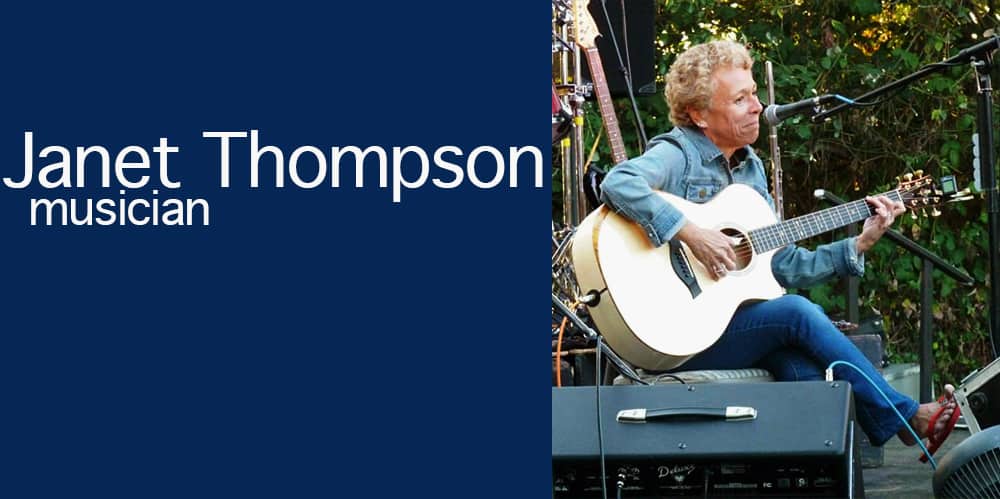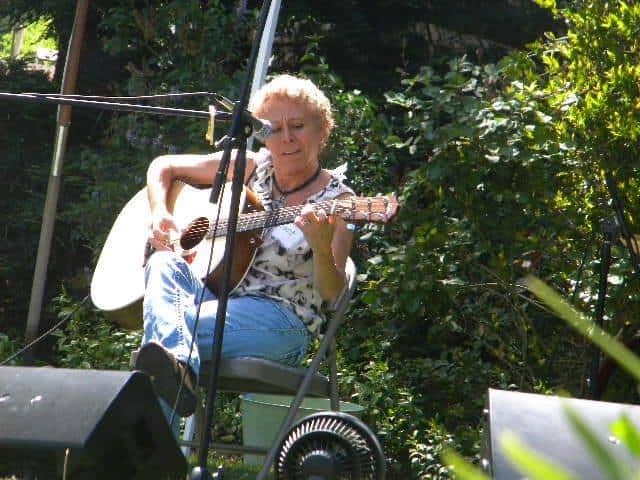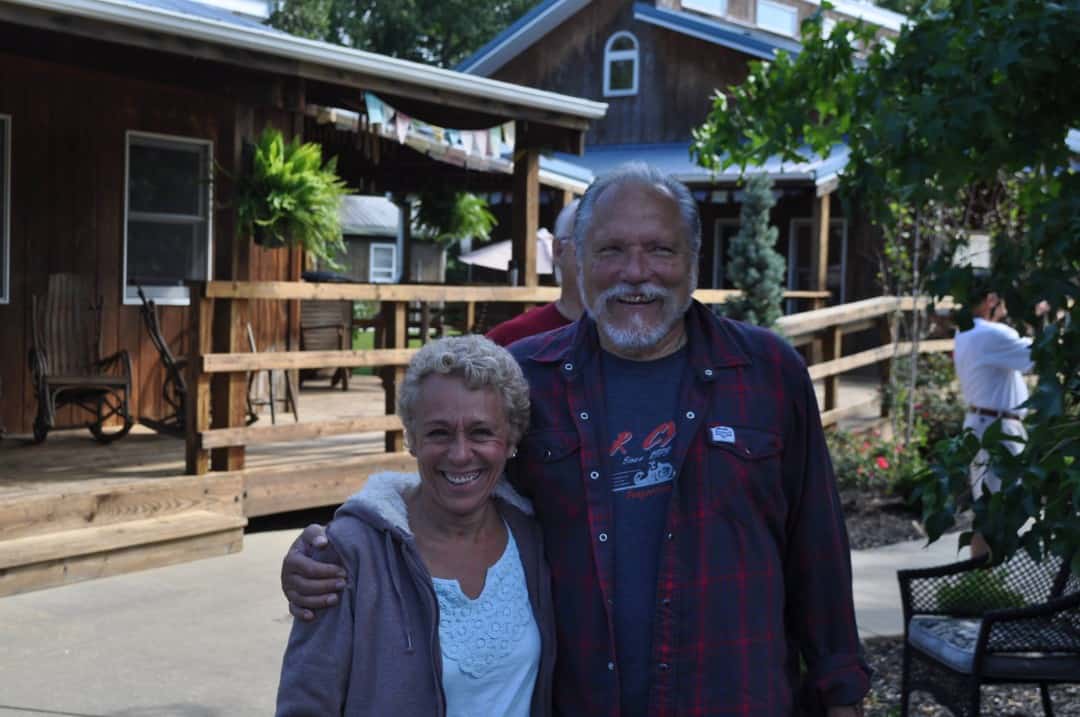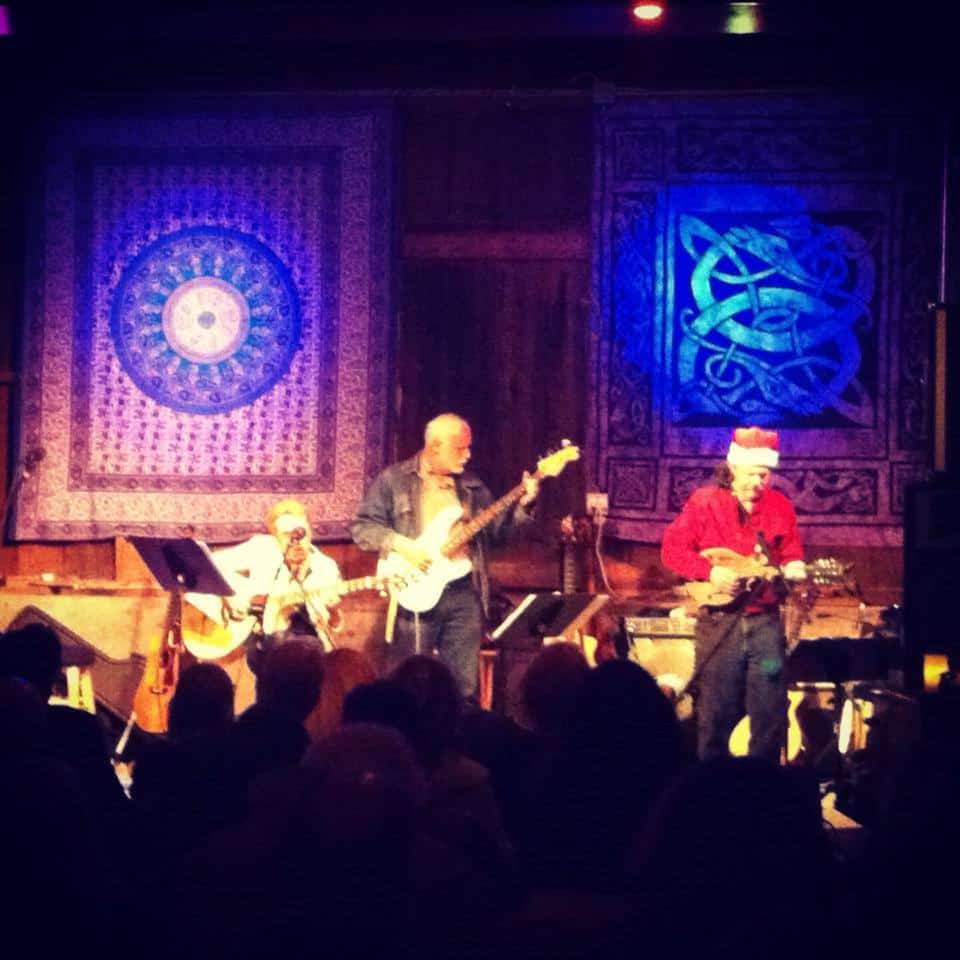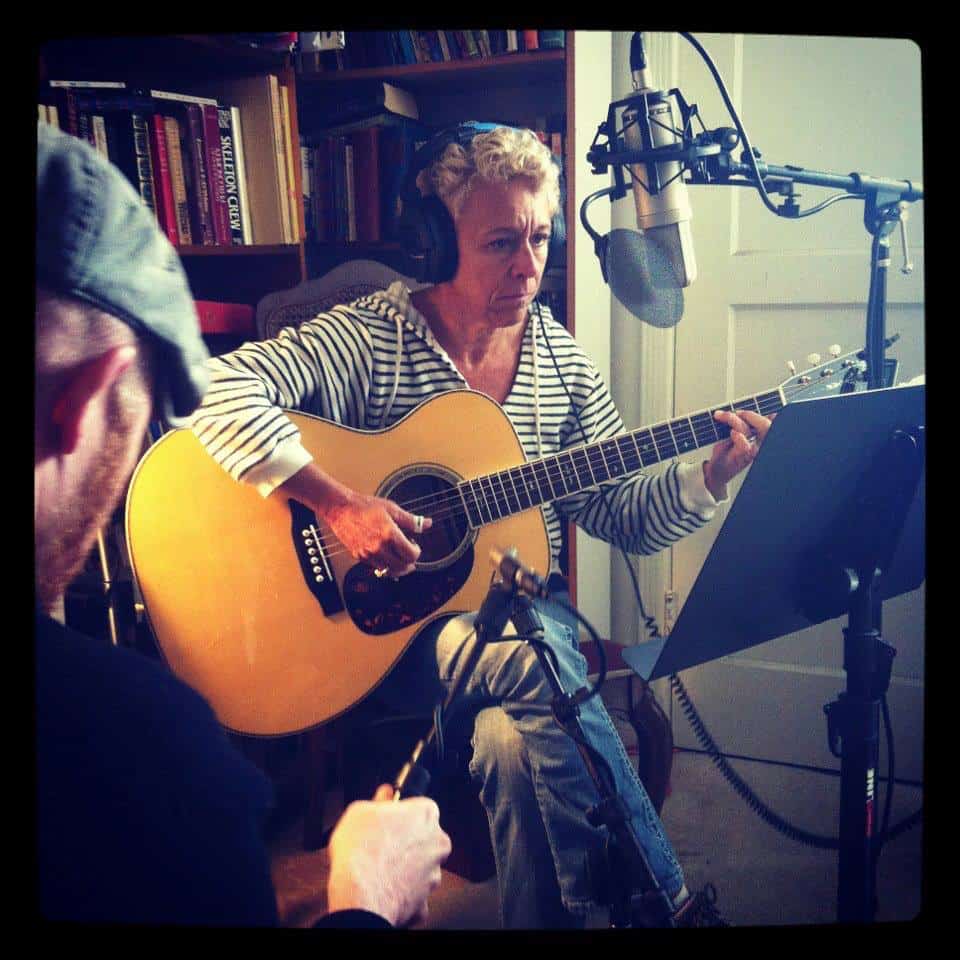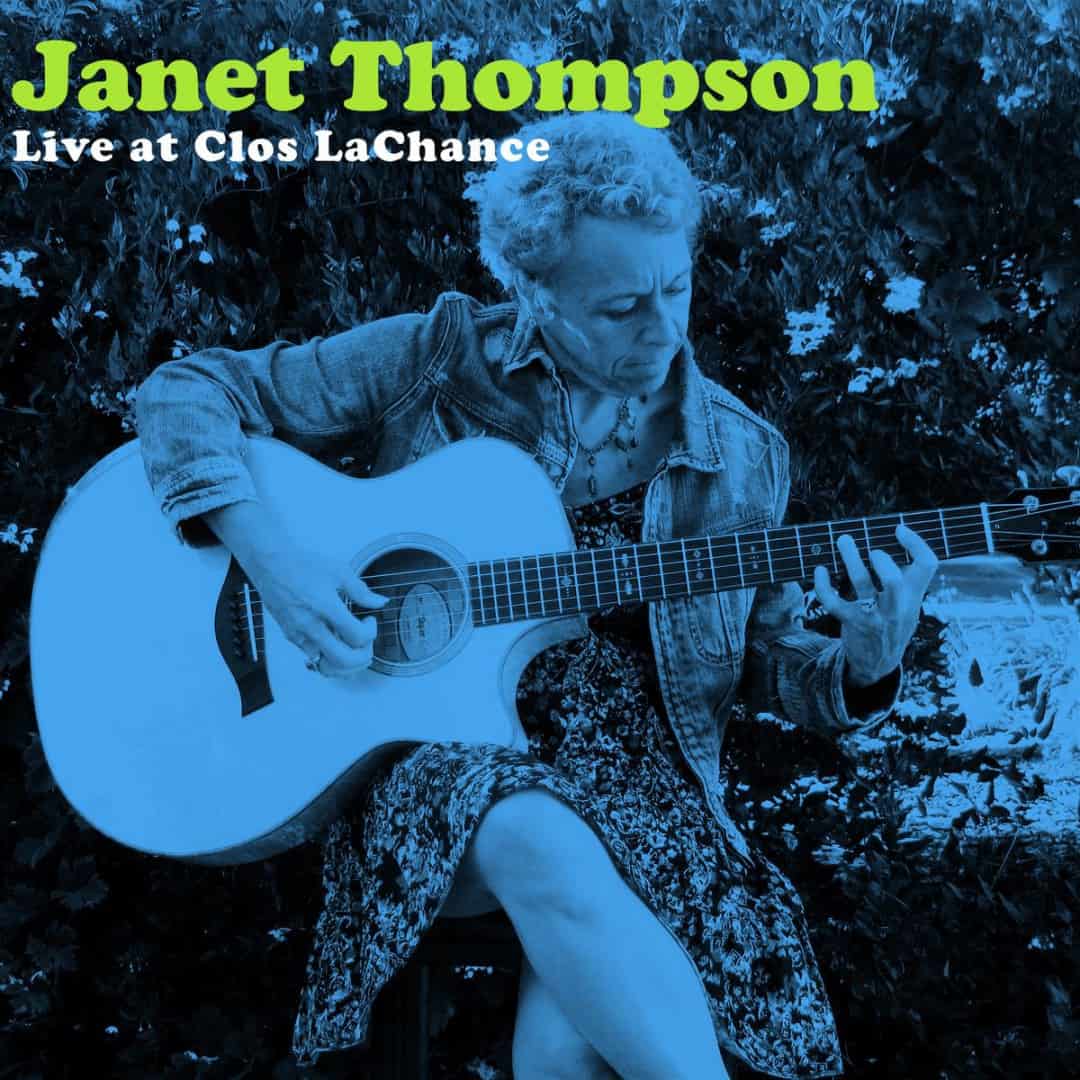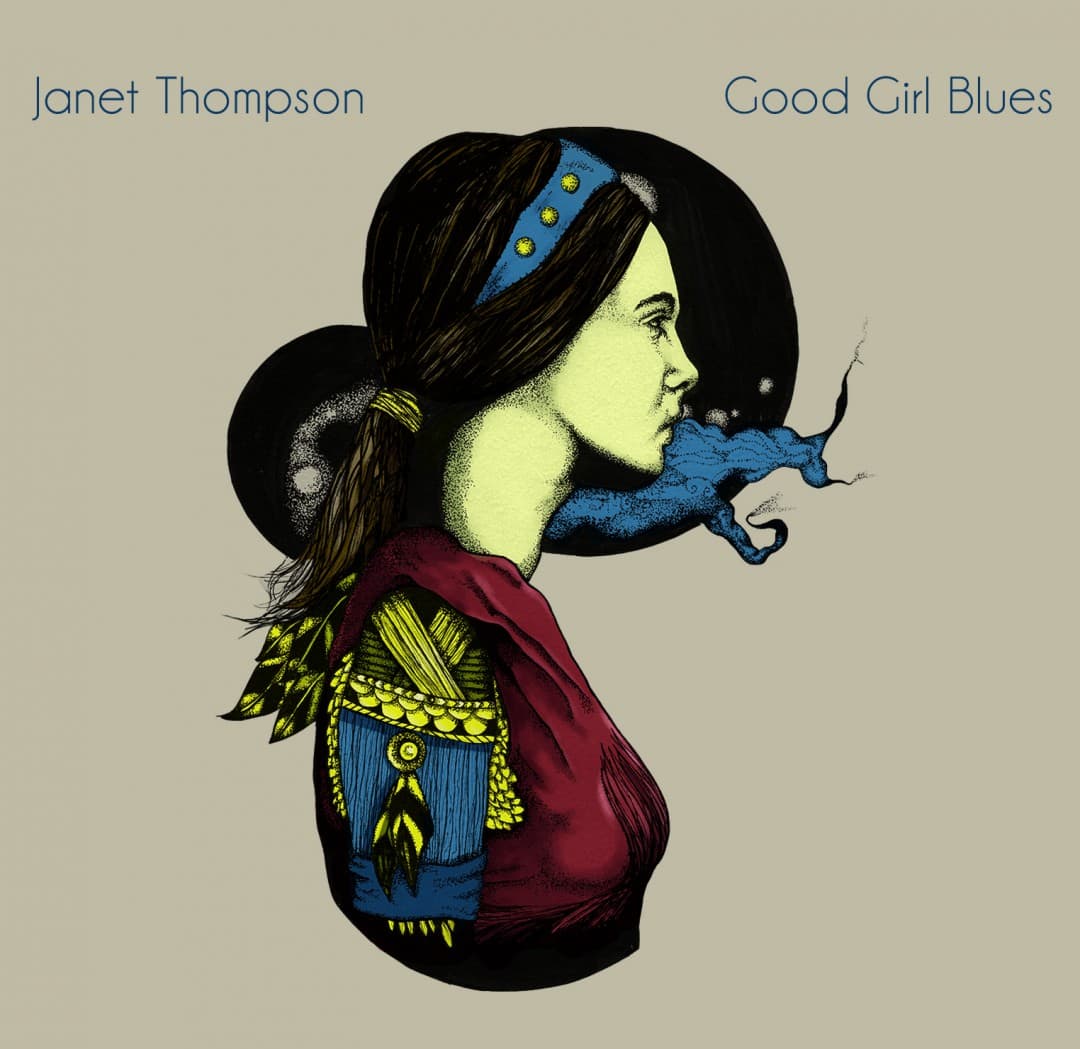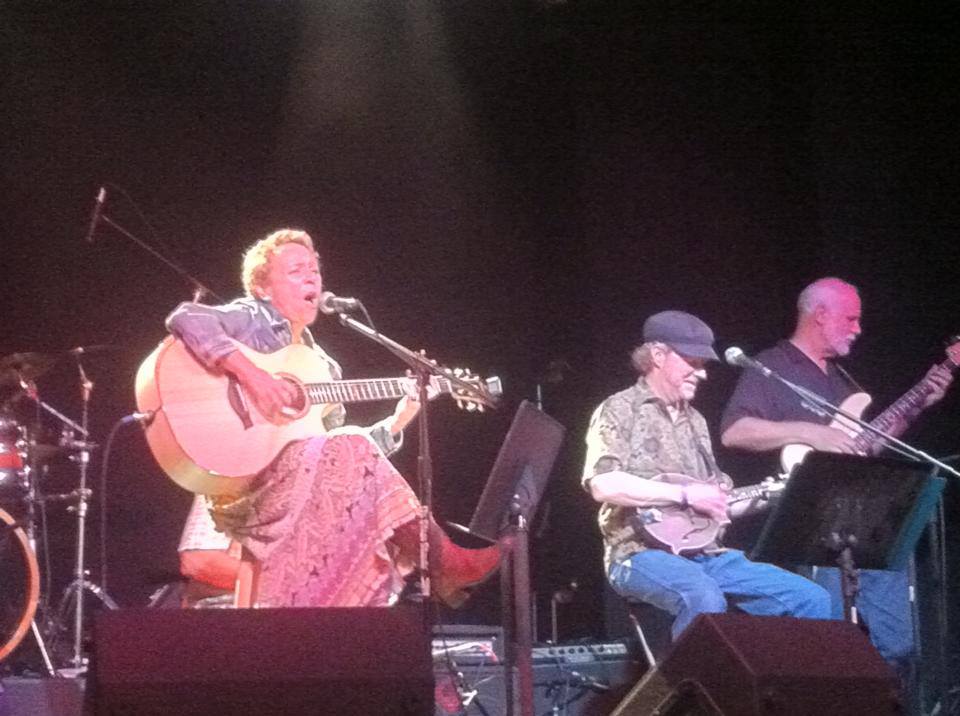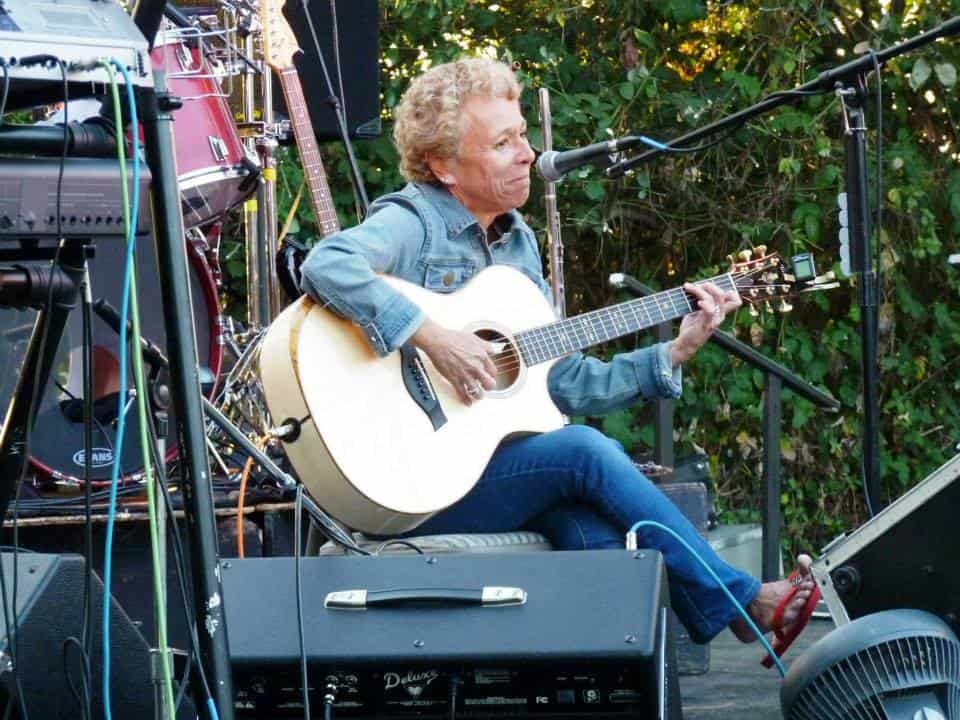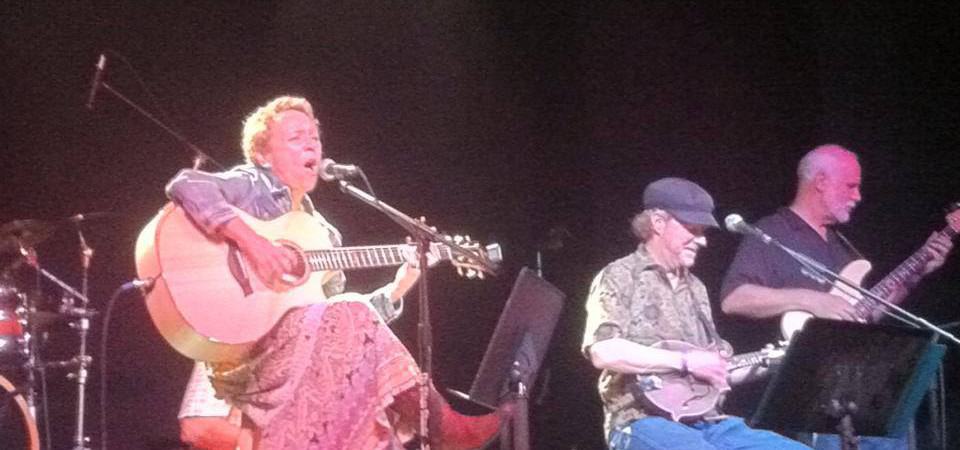
By Chris Jalufka | 03.16.2014
The career of musician Janet Thompson evolved from the career of Janet Thompson, Esq. Attorney at Law. An odd transition, but not as uncommon as you’d think.
Back in her early teens, Janet learned the guitar from a series of tapes her older sister recorded of her lessons with a man named Jerry, who she’d later find out was Jorma Kaukonen, guitarist of Bay Area legends Jefferson Airplane.
She had a natural gift for the blues, but then life happened and the guitar was put away as law school and family took over.
Now thirty years later and retired, Janet’s law degree is just a memento on the wall and the guitar is out of the closet.
This is a story close to my heart, and not just because Janet is my mother-in-law. It’s inspiring to see someone go after their dreams, no matter the point in their life.
Janet’s story is the dream of many creative people. She took the responsible path — left the music dream behind and went to school, raised a family. Found success in that path.
And now, with her kids grown up and retired from her law career, she’s making that music dream a reality. Giving it life and taking it to any venue that will have her.
I was able to coerce Janet to share her story. I hope some of her spirit rubs off and a few more dreams get launched.
_______________________________________________________________________________________________________________________________________________________________
ETDC: Just to get the timeframe right, when did you start teaching yourself guitar from the tapes? Was it something that you had a strong desire to do, or did you pick it up more on a whim?
JT: When I was about 10 or 11 my sister was taking guitar lessons from Jorma Kaukonen at Benner Music in san Jose. I was fascinated with the guitar and had her show me a few things like basic chords and picking.
She had taped her lessons and would listen to them at night. I’d sit outside her door and listen, too. I didn’t really start listening to the tapes on my own until my sister left for Spain for her junior year abroad. She left her Guild d-40 and the tapes and I began listening to them on her big reel to reel tape recorder.
My sister was 20, so it was the year I turned 13. I was pretty focused and practiced over and over. I tend to do that when I get into something. I get pretty single minded and obsessive!
Hearing you play now, it’s pretty unbelievable that you could have walked away from the guitar for so long. You went from not playing at all to performing around the area and writing a handful of great songs right away, like it was all just sitting inside, waiting to come out. What prompted the return to music?
My return to music was prompted by my introduction to Cheryl and Eric Behlmer, very good friends of ours who put on house concerts in their barn. Eric, who is an amazing musician, has an after Christmas song circle for all his guitar playing friends.
I was talking to Eric about music and told him I used to play. He talked me into bringing my guitar to the song circle. His friend Honker was there and Honker said, ‘Hey, you sound like a little Jorma.’ I laughed and told him that I’d learned from Jorma. He then told me about Fur Peace ranch and I knew I had to go there some day to meet Jorma in person.
There’s something wonderful about your story – I mean, thirty years is a long time to go without doing something you love and are amazing at. During the years that you weren’t playing guitar, did something else take its place? Was there a creative outlet at all?
As I said, I am very obsessive, and when I was 31, I went back to school and completely immersed myself in that world. I got my law degree in 1992 and concentrated on building a career. I barely touched a guitar until that Christmas get together.
But I found it’s like riding a bike-the muscle memory is there, and once the fingers are toughened up, it’s just a matter of regaining the technique. The frustrating part is that now that I’m older I have physical limitations that I didn’t have before, like arthritis.
In the years when I didn’t play, I really had no creative outlet that I can recall. I became pretty focused on law and raising my two kids.
Did you stop playing all of a sudden or was it a slow crawl? Did you have to make a conscious effort, ‘I am not going to play guitar anymore’ – or did the interest just wane?
I found that I just didn’t have the time to play. School became all consuming and days would turn into weeks and months, and without calluses, it was a lot harder to do, so I eventually stopped. I got to the point where I thought of myself as a former guitar player.
In the time that you weren’t playing, you raised a family and had an incredibly success career in law. Knowing my share of aspiring creative types, there’s a common struggle to balance wanting a family and supporting yourself with harboring the dream of making it the arts.
Before you stopped playing did you have any plans for recording, touring – taking music on as a profession? What was your relationship to the guitar at that time?
I never thought I was good enough to go anywhere with it. It was just fun and I knew I was pretty proficient. My playing garnered respect, and it was also a way of meeting people. No one ever expected a girl to play the style of music I play.
Even now, very few women play this style. I guess that’s part of the fascination for me. I like to be a little bit of an iconoclast, I guess. I always try to do things that people don’t think I can do. I think that’s one of the reasons I went into law, too.
My parents were children of immigrants and older when I was born. In their world, women were teachers and nurses. There’s nothing wrong with that, but I wanted to be a lawyer.
Accomplishing that goal gave me great satisfaction, and graduating Magna Cum Laude was like an ‘in your face’ to those who dismissed my aspirations. Same with the guitar. I don’t want to ever be viewed as someone who is predictable or ordinary.
You play a very specific type blues – what drew you to that genre? Was it an immediate connection? Did you ever mess around with other styles?
I don’t know what it was about that style. I listened to a lot of different types of music when I was younger, but I think my first encounter with the tapes and that type of music had a tremendous impact on me. Also, it’s a type of music one can play alone. And picking is so much more fun than strumming. In fact, i’m a terrible strummer. I don’t enjoy it. If I had learned that first, I may never have kept with it.
I also liked electric blues, but I played acoustic. I remember the first time I heard real Chicago Blues, though. Paul Butterfield Blues Band with Eric Clapton. I just about wet my pants.
When you first started playing again we were talking about lyrics – you thought you might struggle, having nothing to write about but then you went on and wrote a ton of songs. When working on lyrics, what’s your starting point? Is there a melody, a line – a concept, that you begin with?
Except for ‘The Man on the Tapes,’ which started as a poem, I start with a chord progression and then try to sing a melody and then sometimes a line will come. I build from there.
For me, the lyrics are the hardest part. You don’t want to sound trite or maudlin and you don’t want to sound like a pompous ass. It’s tough to write something meaningful that doesn’t sound self indulgent or self important.
I think when I write for myself without thinking about how it’s going to sound for other people, it works out better. And there’s also a musicality to words that one has to consider. You can say the same thing many ways, but sometimes the sound of certain words just fits better. Also, the connotation of words is important, too. Writing is hard, but very satisfying.
You’ve been a repeat attendee of Jorma Kaukonen’s guitar camp. What do you get out the camps?
It’s almost like a cult because it is such a very specific genre. I always feel like I’m with my peeps, like these people really get it. There’s a connection on a certain level that doesn’t exist with others in the world.
Also, the musician teachers are first class, and just being around them is exhilarating. And Jorma and Vanessa are super nice to boot.
You’ve done something I know a lot of folks dream about – retiring and following a new path, following a dream. How was that transition? Was it difficult to let go of a career as an attorney that you spent so much of your building?
I was so ready to let the law thing go. I had begun to dislike my clients and my work, which is not good for the clients or for me.
I’m fortunate enough to have a very sweet, supportive husband who indulges me and who makes enough money, luckily for me, that I’m able to follow my bliss. It’s been a fun, fun ride.

Now that you’ve retired from the life of an attorney, have you settled into this new path as musician?
I realize that being a musician is not going to replace my career as a lawyer. It’s a hobby, but it’s a hobby I really love. As long as I’m enjoying the process, i’ll keep at it and keep trying to hone my skills. It’s always so much fun to learn something new-a new song, a new riff, a new technique.
I have no ultimate goal except to keep having a good time doing it. If it stops being fun, I’ll just find something new to be obsessive about.

_______________________________________________________________________________________________________________________________________________________________
For more from Janet Thompson —
_______________________________________________________________________________________________________________________________________________________________
